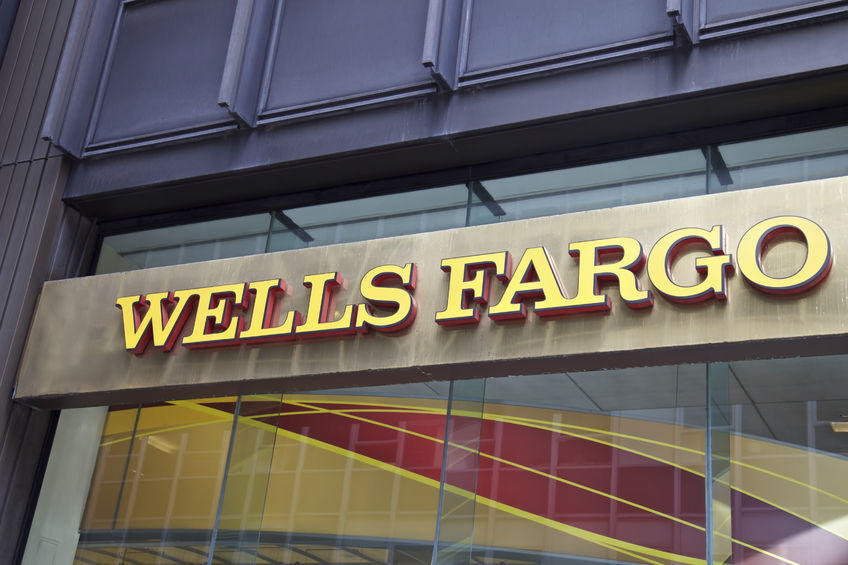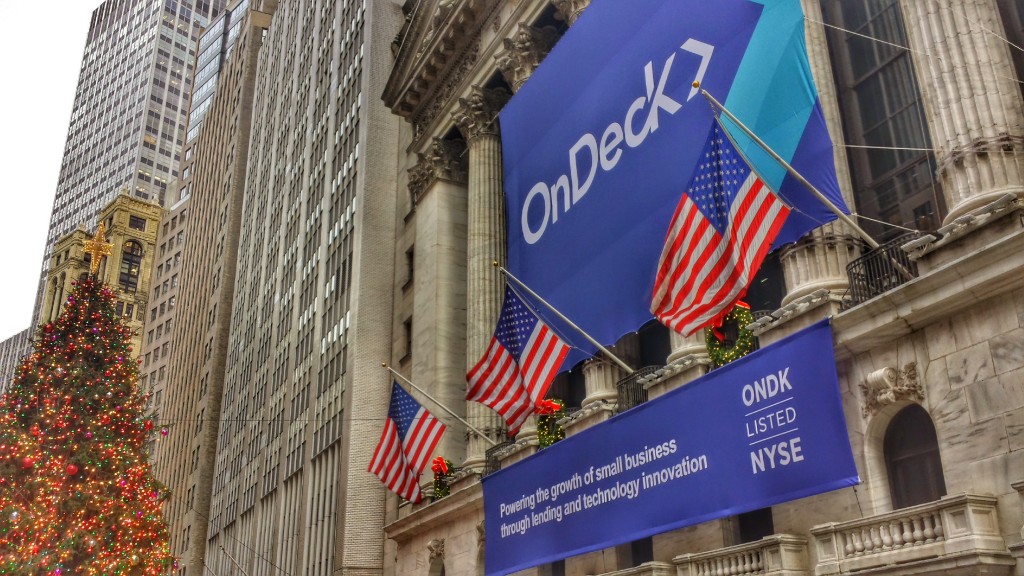Business Lending
Expansion Capital Group Joins The $100 Million Club
May 13, 2016 Expansion Capital Group has officially lent its one hundred millionth dollar since inception. In an e-mail, the Sioux Falls, South Dakota-based lender said they’re proud of the small businesses they’ve helped along the way. And they’re helping them at increasing speed, records indicate. The company celebrated its $50 million milestone less than 9 months ago, which means they’re lending more than $50 million a year.
Expansion Capital Group has officially lent its one hundred millionth dollar since inception. In an e-mail, the Sioux Falls, South Dakota-based lender said they’re proud of the small businesses they’ve helped along the way. And they’re helping them at increasing speed, records indicate. The company celebrated its $50 million milestone less than 9 months ago, which means they’re lending more than $50 million a year.
In November, the company announced the closing of a $25 Million credit facility through Northlight Financial and Bastion Management to support their rapid growth.
Rebanked? Wells Fargo to offer short-term, easy credit to small biz
May 10, 2016
Wells Fargo wants to lend $100 billion in five years and wants to do it quick.
The bank’s new loan product, FastFlex, ostensibly an answer to easy online loans will provide short-term credit to small businesses to be processed in a day.
To qualify, businesses need to have been Wells Fargo customers for at least a year and have strong cash inflows. The loan size will range from $10,000 to $35,000 with a one-year term and payments will be automatically deducted from the customer’s deposit account.
“With a $100 billion lending goal, we want to make every responsible small business loan we can,” said Lisa Stevens, Wells Fargo’s head of small business in a news release.
The announcement comes at a time when loan originations by online lenders is slowing and the industry is grappling with growing pains. Lending Club’s stock tanked 35 percent after CEO Renaud Laplanche resigned amidst a loan manipulation scandal and last week, Prosper laid off 171 employees and shut down its office in Utah.
Is the baton being passed on to the banks again?
Defrauding Fintech Lenders Leads to Conviction
May 8, 2016 It’s not just collection firms and attorney demand letters that deceptive borrowers need to be wary of. In the Western District of Tennessee, Preston E. Byrd was convicted on six counts after defrauding RapidAdvance and Windset Capital out of more than $100,000 collectively.
It’s not just collection firms and attorney demand letters that deceptive borrowers need to be wary of. In the Western District of Tennessee, Preston E. Byrd was convicted on six counts after defrauding RapidAdvance and Windset Capital out of more than $100,000 collectively.
According to the original indictment filed in August of last year, “Byrd did knowingly devise and intend to devise a scheme and artifice to defraud Windset Capital and RapidAdvance by means of false and fraudulent pretenses, representations and promises.” As part of that, Byrd submitted fake bank statements, a fake lease agreement and other misleading documents. He faked his own name, calling himself Jason Hester, and pretended to be the landlord of the property in question, confirming falsely to underwriters that a lease existed and was in good standing.
In reality, he had no business location.
Once Byrd received the funds from each company, he wired portions of the ill-gotten proceeds to other accounts.
The jury convicted him on three counts of wire fraud and three counts of engaging in monetary transactions in criminally derived property. The trial concluded on March 24th of this year and Byrd is expected to be sentenced on June 16th.
The case is unique because the sole victims were fintech lenders and the criminal charges were brought by United States Attorney Edward L. Stanton III.
On his twitter account, Byrd describes himself as a “multifamily housing developer, entrepreneur, business consultant, public speaker, mentor, yogi, and (some might say) a cool dude.” Not mentioned there however is that Byrd was previously convicted of wire fraud in 2003 and that he also lost a lawsuit brought by Arvest Bank for fraud.
The criminal case # concerning Byrd with Rapid and Windset is 2:15-cr-20025-JPM
Online Lending APR ‘SMART Box’ To Apply To Loans, Not Merchant Cash Advances
May 5, 2016
OnDeck, Kabbage and CAN Capital have launched an initiative to make online loan shopping easier. Dubbed the SMART (Straightforward Metrics Around Rate and Total Cost) Box, these lenders plan to present small businesses “with a chart of standardized pricing comparison tools and explanations, including various total dollar cost and annual percentage rate metrics that enable a comprehensive pricing comparison of loans of equivalent duration.”
The Box, clearly meant to increase transparency, was explained in an ironically confusing way, particularly where it said it would include annual percentage rate metrics. An Annual Percentage Rate (APR) is indeed a representation of several metrics and thus it wasn’t clear if the Box would just include some of these individual metrics and conveniently leave out the APR itself.
OnDeck CEO Noah Breslow for example told Forbes only six months ago that annual terms don’t make sense. “The APR overstates the actual cost of the loan to the borrower,” he said. He was not alone in thinking that way. Several studies have concluded too that merchants don’t always even know what APR represents. Lendio for example, found that two-thirds of small businesses selected the total dollar cost of a loan as the easiest to understand. Only 17.4% said the APR was the easiest.
And there’s another thing, the fact that CAN doesn’t just do loans, they also do a significant amount of merchant cash advances. What role could an APR have there? While the Box’s final system won’t be decided until after the conclusion of a 90-day national engagement period that begins next month, one can only imagine that it might have a Schumer Boxer feel to it.
Via: NerdWallet
The syntactic ambiguity in the announcement however was unintentional. A spokesperson for the group (Known as the Innovative Lending Platform Association) said that the SMART Box will indeed include Annual Percentage Rates.
But that’s where loans are concerned…
When deBanked asked about merchant cash advances, Daniel Gorfine, vice president and associate general counsel of OnDeck; Parris Sanz, Chief Legal Officer of CAN Capital and Azba Habib, assistant general counsel of Kabbage, submitted the following joint response:
“As part of the SMART Box initiative, we are interested in engaging with providers of MCA products. Based on consistent assumptions about a small business’s future sales volumes and its ability to deliver the contracted amount of receivables within the period of time estimated during underwriting, the SMART Box could apply to MCA products.”
So long as SMART Box disclosure is voluntary, an MCA company could perhaps employ their own version of it. It just might come sans APR given the product’s history with state regulations. The Association is emphatic however that this concept could be used by MCA companies and others in the small business financing space. After all, the initiative is rooted in transparency for the small business owner, they say.
In September, the Association “will encourage those interested in promoting the responsible development of the small business lending industry to voluntarily adopt or support the model disclosure.”
Given the level of influence these companies have on the industry, the voluntary nature of the SMART Box has the potential to spark an industry-wide box revolution. MCA companies however would need to structure transparent disclosure around their contractual frameworks. But even that could be a good thing. One commercial financing broker for example, posted a redacted service fee agreement to the DailyFunder forum earlier this week that purported to show another broker trying to charge a merchant a 26% premium (26% of the funding amount) for their work. Despite this unusually high cost, the charge itself was hard to find, hidden among fine print on an otherwise benign looking page. Naturally, others in the industry did not respond kindly to it. Even other brokers referred to it as “outrageous,” “nonsense,” or “bs.”
Their reactions make clear that there is a desire for transparency even among the group most often blamed for the lack thereof. Some of the industry’s forward thinkers have told deBanked that a system like a SMART Box is the future of the industry whether one agrees with it or not. And if not for the sake of small businesses and regulators, then for the sake of being able to compete fairly against companies that may be relying on truly hidden fees.
SMART Box. All aboard the transparency train?
Square Capital’s Default Rate is 4%
May 5, 2016
Square revealed today that its Square Capital division had extended $153 million through more than 23,000 advances and loans in the first quarter. The company is still transitioning from merchant cash advances to loans to appease institutional investors. This was not only said at LendIt by Jackie Reses but also reiterated in their Q1 earnings report. “We believe that the transition to a loan product further increases our ability to attract new Square Capital investors,” it said.
Their default rate continued to hover at 4%.
That number is shockingly low considering that under a pure merchant cash advance model they did not conduct credit checks, nor did even they review bank statements or tax returns. Rather the company relied almost entirely on a merchant’s sales history with Square.
This process may have made funding easy but was potentially a hard sell to regulators. As part of their transition to a lending model, all applicants are now subject to a credit approval and have to supply identifying documents. Square also bought an analytics startup less than two months ago to help them make more informed underwriting decisions. This can only mean that if their default rate was 4% with no underwriting, their prowess as a lender will likely increase considerably.
California Lending License Questions Answered – Even the Tricky Ones
May 2, 2016 Q: Can a loan broker operate under the authority of a lender that’s licensed in California?
Q: Can a loan broker operate under the authority of a lender that’s licensed in California?
A: “The CFLL requires both lenders and brokers to hold their own licenses.”
That’s one of many responses provided by Department of Business Oversight Commissioner Jan Lynn Owen to a series of questions and hypothetical scenarios posed by the Equipment Leasing and Finance Association. The nine pages of answers, available on Leasing News basically explains that any funny business or creativity to try and circumvent the law will not be tolerated.
Tom McCurnin, an attorney at Barton, Klugman & Oetting, wrote in Leasing News that “disguising the commissions as something else, like a markup or consultation fees, won’t pass muster before the DOB. The parties engaging in this may be subject to a cease and desist order and hefty fines.”
“While many may claim the recent letter is a revelation, I believe it is simply a restatement of what we’ve known all along—get a license or face the consequences,” he concludes.
CAN Capital Makes Prized Alliance With Entrepreneur Media Inc
May 2, 2016CAN Capital partnered with Entrepreneur.com to create another channel of funding small businesses.
Last month (April 7th), the 18 year old company surpassed $6 billion in small business funding and later this year, it will launch Entrepreneur Lending Powered by CAN Capital to process working capital loans on behalf of the media giant.
“As we get ready to celebrate National Small Business Week, we are excited to work with Entrepreneur Media to continue delivering on our vision of helping small businesses grow and achieve their goals through fast access to funding,” said Daniel DeMeo, CEO of CAN Capital.
 The New York-based company which uses propriety data-driven models has made over 170,000 individual fundings including restaurants, medical offices and beauty salons. Last year, the company introduced two new special small business loans – TrakLoan, which adjusts daily payments with daily card sales and a monthly installment loan product offering a customer longer terms with higher transaction sizes.
The New York-based company which uses propriety data-driven models has made over 170,000 individual fundings including restaurants, medical offices and beauty salons. Last year, the company introduced two new special small business loans – TrakLoan, which adjusts daily payments with daily card sales and a monthly installment loan product offering a customer longer terms with higher transaction sizes.
This comes in the context of small businesses being underfunded. Business Insider recently reported that “only half of small businesses with $100,000 to $1 million of annual revenue received at least some of the financing they applied for from large banks in late 2015.”
As banks wrestle with tight lending practices, online lenders have filled the gap for providing quick and smaller loans to businesses who need prompt financing.
OnDeck Prices $250 Million Securitization
April 29, 2016
OnDeck announced the pricing of its $250 million securitization. The online lender will issue notes in two classes consisting of $211.5 million initial principal amount of Class A Notes and $38.5 million initial principal amount of Class B Notes with final legal maturity in May 2020.
Notes were priced with an annual yield to expected maturity of 4.250% for class A notes and 7.754% for class B notes.
“We believe the successful pricing of our securitization demonstrates the strength of our hybrid funding model, which includes warehouse funding, securitizations and whole loan sales,” said Howard Katzenberg, OnDeck’s chief financial officer in a news statement.
As the alternative lending industry proliferates, companies scramble to secure long-term capital and diversify risk. The hybrid model for funding is one way of doing that as investors demand higher yields from loans sold by marketplace lenders. Moody’s downgraded loans consumer loans originated by Prosper on account of missed payments of underlying loans. And earlier this month (April 12th), Citigroup said that it will stop securitizing loans made by Prosper.
However, this does not signal gloom and doom yet. This week, Lending Club revisited securitization and confirmed that it is reportedly in talks with Goldman Sachs and Jefferies Group to put together its first big bond offering.
Will OnDeck’s loans face the same market trepidation?






























